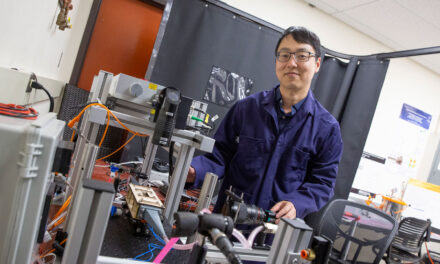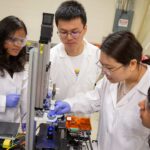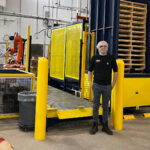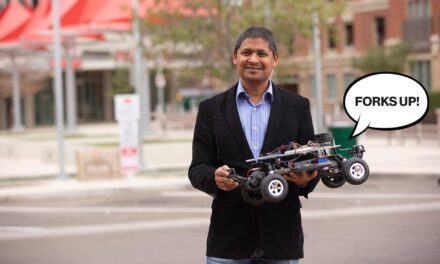
Computing expertise earns Ye NSF CAREER Award
April 15, 2010
Accomplishments in some of the most complex aspects of computer science and engineering have helped Arizona State University faculty member Jieping Ye earn a prestigious National Science Foundation Career Award.
The award recognizes engineers and scientists in the early years of their career who are making notable research contributions and providing students with knowledge gained through that research.
Ye is an assistant professor in the School of Computing, Informatics, and Decision Systems Engineering, a part of ASU’s Ira A. Fulton Schools of Engineering. He teaches machine learning, data mining and numerical linear algebra.
His research focuses on developing new types of machine learning methods that are important to advanced research in biology, genomics, health sciences, finance, statistics, signal processing and other areas involving voluminous amounts of high-dimensional data.
The Career Award will provide Ye with $400,000 award over five years to expand his research.
The award “is a testament to both his outstanding accomplishments and significant contributions to the field of data mining and knowledge engineering,” said Ronald Askin, director of the Schools of Computing, Informatics, and Decision Systems Engineering.
“This will enable him to continue developing innovative approaches necessary to analyze the high-dimensional data sets that are essential to modern scientific investigation,” Askin said.
“My work focuses on developing efficient and effective knowledge discovery and pattern mining algorithms that can reduce the dimensionality of complex multi-label data,” explains Ye.
Dimensionality refers to the features or attributes used to describe data. Such a description, for example, include attributes such as information about age, gender and grade point average that identify each individual student, or the amino acids that make up a protein and define how it functions.
Advances in information technologies have produced large amount s of data containing vast dimensions – for example, gene expression pattern images, microarray gene expression data, protein/gene sequences, and neuroimages.
Through dimensionality reduction, Ye develops methods to help researchers analyze these large, complex data sets by developing algorithms that identify and remove irrelevant attributes and extract only the specific information required by researchers.
The Career Award recognizes Ye’s development of new types of frameworks for such multi-label dimensionality reduction.
Unlike existing dimensionality-reduction algorithms, which require a separate and often time-consuming pre-processing step before classification for each data source, Yes’s projects will help make it possible to simultaneously integrate, categorize, and dimensionally reduce multiple heterogeneous data sources and extract the important patterns and relationships that they contain.
These techniques will improve the state-of-the-art in dimensionality reduction for multi-label classification, and will help open up new areas of scientific research that involves large, complex sets of data.
The Career Award funding will also help Ye incorporate his research into classes that will prepare students for advanced computing work, and provide them research opportunities enabling them to contribute to this emerging area of knowledge engineering.
Written by Jessica Graham



































